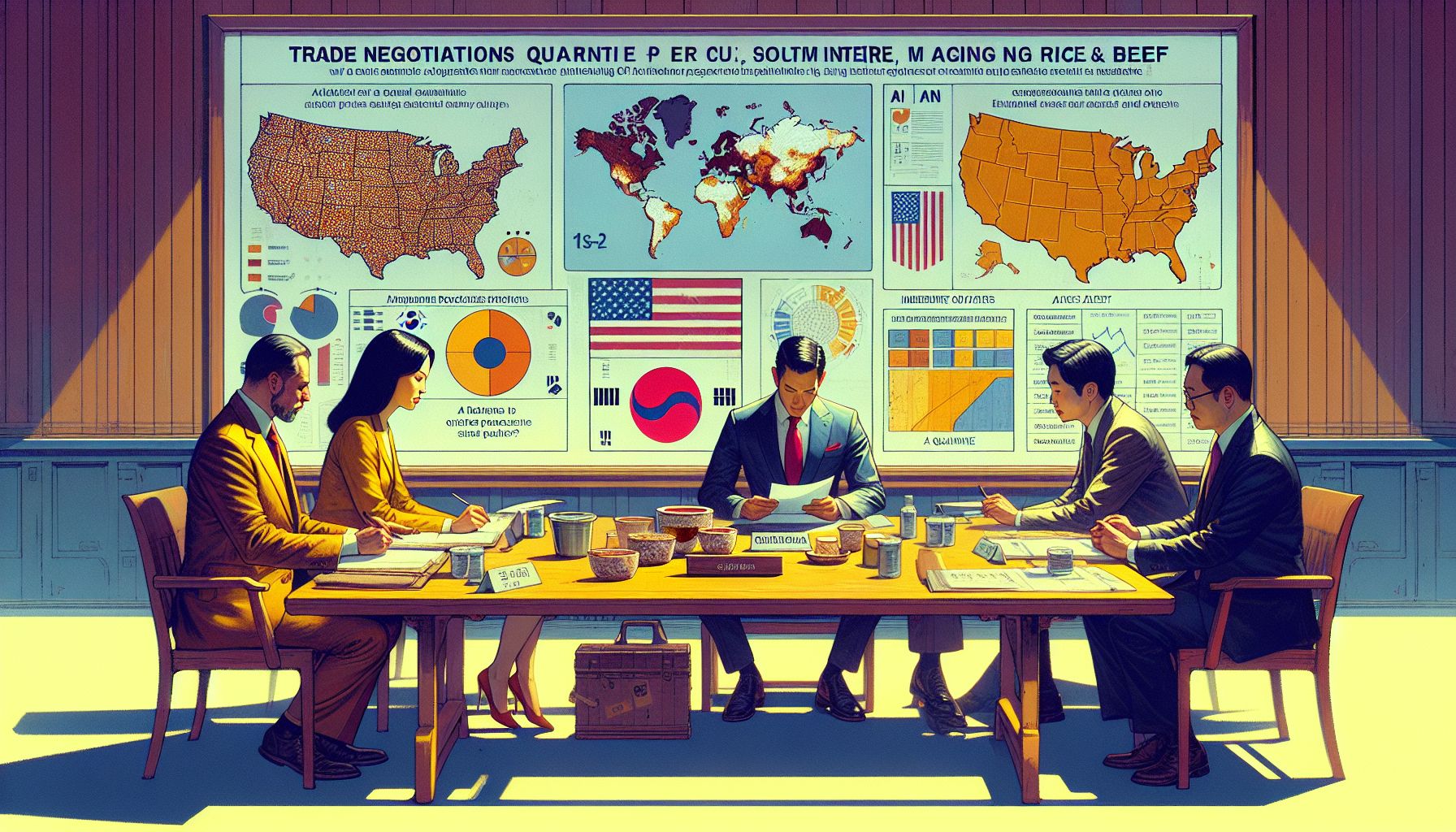South Korea Faces New Quarantine Challenges in US Trade Talks

Seoul, Friday, 15 August 2025.
South Korea’s recent trade negotiations with the US revealed concerns over quarantine procedures impacting rice and beef. Despite blocking tariffs, AI-driven quarantine solutions present new hurdles.
Implications of AI-Driven Solutions
The integration of AI in quarantine procedures aims to streamline inspections for agricultural imports like fruits and vegetables. While AI offers the promise of expedited processes, it raises concerns among South Korean farmers about the potential influx of foreign competition. Specifically, apple farmers have expressed unease as they view their produce essential to the nation’s agriculture, akin to staples like rice and beef. The fear is that hastened and AI-driven procedures could open the door for increased U.S. imports, threatening local markets [1].
Quarantine Procedures and Market Access
The South Korean government has been urged to place greater emphasis on scientific, rather than trade-driven, quarantine protocols. Current negotiations with the United States revolve around enhancing these measures while avoiding further market openings for sensitive products. The Korean Ministry of Agriculture, Food and Rural Affairs maintains that any proposed adjustments must thoroughly account for domestic agricultural interests [1][2]. Despite these assurances, apple producers continue to demand cautious progress, fearing that expedited procedures could serve as a pretext for loosening import restrictions on U.S. products [1].
Economic Pressure from the U.S.
The completion of negotiations on July 31, 2025, saw tariffs on U.S. goods reduced to 15%. However, the focus quickly shifted to non-tariff barriers, notably sanitary and phytosanitary standards. These discussions highlight the U.S.’ desire to address and potentially reshape South Korean quarantine policies [3][4]. Such measures are perceived by many South Koreans as a way for the U.S. to marginalize homegrown agricultural sectors amid broader trade conflicts. Experts argue that this could put undue pressure on Korean farmers already navigating difficult environmental and economic climates [2][5].
Domestic Reactions and Strategic Measures
In response to these developments, South Korean agricultural groups have amplified calls for increased government support to safeguard traditional practices that enhance food security. As the nation faces escalating climate and cost challenges, proactive measures are seen as critical to maintaining agricultural stability and preventing over-reliance on imports [2][4][5]. Moving forward, experts suggest that South Korea must craft its strategies with a keen eye on both economic resilience and environmental sustainability, balancing international trade agreements with domestic agricultural interests [3][5].